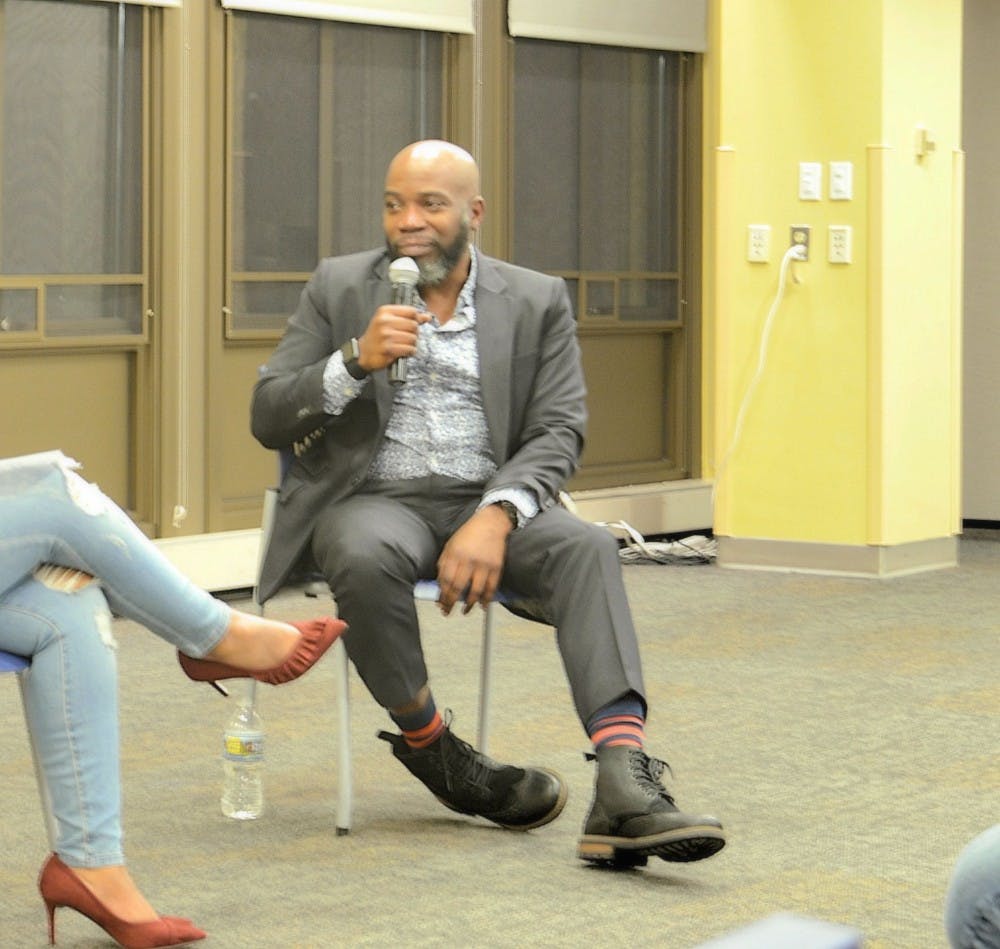Men of Empowerment and Excellence, The Blackprint and Anonymous List for Change (ALFC) invited four journalists to speak at American University about their experiences as black journalists on Feb. 27.
ALFC, a nonprofit organization founded in 2016 by husband and wife Bryson and India Daniels, wishes to “empower and inform youth and millenials of ongoing civil rights issues” and promote “equal opportunity for all Americans,” according to their Facebook page.
India Daniels sat down to speak with each of the four panelists, including AU senior and journalism major Ryan Shepard.
As a college student, Shepard has been involved in multiple writing projects, including being the editor of the AU chapter of The Odyssey, writing opinion articles for The Eagle and managing Speak Fresh, a slam poetry organization at AU.
Shepard also published a memoir in 2015 called “The Jump: My Journey from Public to Private High School Education,” which began as a high school capstone project, he said. He said that he is currently in the process of writing a second book.
“Stick to what it is that you believe,” Shepard told the audience. “If you have a following and you have an audience and you believe in it, someone’s going to want to publish it.”
He also told students to experiment with their interests because college “is a time where you get to try things with little to no repercussions.”
The second speaker of the event was long-time journalist Kenrya Rankin, the deputy editor of Colorlines, “a daily news site where race matters,” according to its website. Rankin attended Howard University where she received a bachelor’s degree in journalism and eventually earned a master’s degree in publishing from New York University.
“It’s such a white industry,” Rankin said. “It’s also a very small industry. I know a lot of the black folks who have been doing this because we all have been doing this together.”
Rankin advised journalism students on how they can become better writers.
“Read. It’s the thing that has probably most shaped me,” she said. “The more varied your experiences in what you read, the stronger your own voice will eventually be.”
Elie Mystal, the executive editor of Above the Law (ATL), a site that covers news through a legal studies lense, also said that reading helps to improve his writing.
“Where I have looked for mentorship...is man, I read,” Mystal said. “That’s all I got. The only way I can figure out that other black people have addressed the same problems that I am addressing in my own life is to read what they said about them.”
Mystal earned a law degree from Harvard Law School after studying law at Harvard University as an undergraduate.
“The only reason why I was able to start at the bottom again was because of the Harvard degrees,” Mystal said. “I don’t know that they [ATL] would’ve let me work as a journalist otherwise.”
He warned students not to pursue journalism if they thought it was “going to pay off monetarily”. Mystal said that he decided to switch career paths because journalism was what he felt he needed to do. It is important for students to figure out what they want to specialize in, because that is what will help them stand out from other journalists, he said.
The last to speak was Michael Harriot, a columnist for The Root, a black news and culture site, and the host of The Black One Podcast Network, a weekly podcast featuring “interesting conversations with or about African Americans,” according to its iTunes page.
“I don’t even consider myself a journalist. I consider myself a writer,” Harriot said.
He did not always plan on pursuing journalism. He originally wanted to create films and “become the next Spike Lee.” Whether it took the form of poetry, film or news articles, Harriot has “always written.”
“If I write something that pisses off white people, you know it’s kinda right,” Harriot said when a student asked him how he defined success. “And that’s not saying that my goal is to piss off white people. But it means that I probably said something they haven’t heard before.”
Harriot advised students not to “do anything for money.”
“When you gotta go wake up tomorrow at the crack of dawn and do the shit that you don’t like,” he said, “at the end of the day...all you have is money, and that’s it.”





